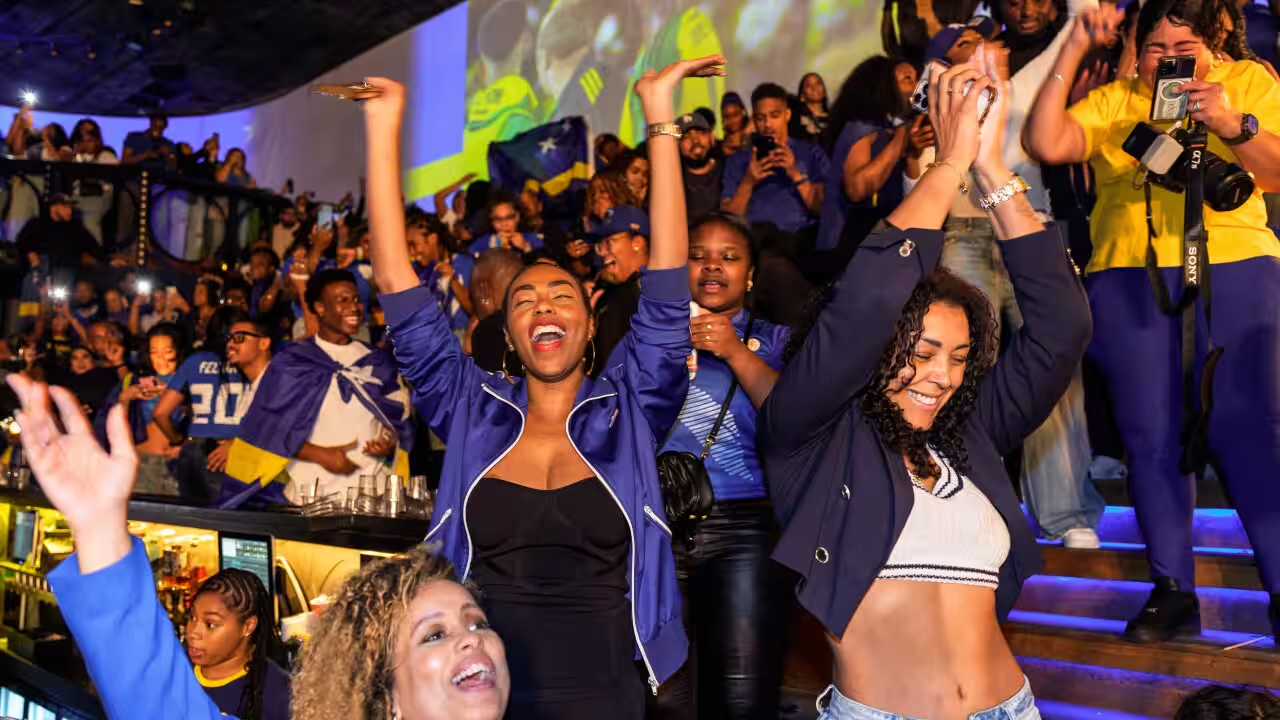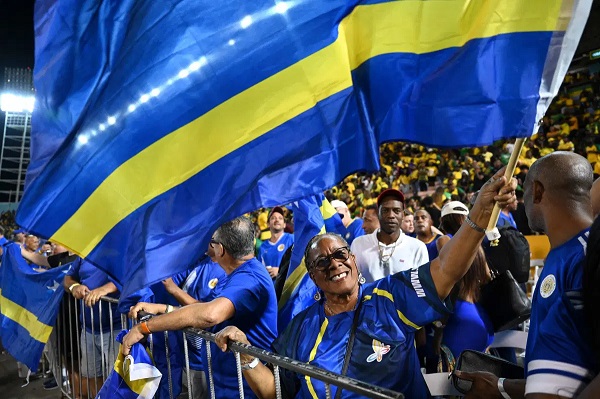GREAT BAY--Curaçao’s first ever World Cup berth is not just a sporting story, it is an economic and social boost for a very small island that suddenly finds itself on the biggest stage in global sport. Qualifying for a FIFA World Cup means increased name recognition, months of media exposure, and a reason for millions of football fans to type “Curaçao” into a search bar. That attention has value for tourism, for investment, for local businesses and for the long term development of sports on the island.
A World Cup functions as a global marketing campaign that no tourism authority could normally afford. From the moment the groups are drawn, commentators and content creators start telling stories about each team, its history, culture, players, scenery and even its food. For a small country, that visibility is priceless. Curaçao stands to benefit through increased name recognition and curiosity, as broadcasters are pushed to explain where the island is, who lives there, how big it is, what language is spoken and why football has grown there.

Every television package, highlight reel and pre-match feature is also a chance to show off Willemstad’s waterfront, beaches, cultural festivals and even the island’s baseball legacy. Over time, those images build an emotional link between the word “Curaçao” and the idea of a vibrant place that viewers might want to visit. Online, search traffic, social media mentions and YouTube content about Curaçao would spike during the tournament. That digital spillover gives tourism authorities and the private sector a window to push targeted campaigns, last minute travel deals and longer term brand content.
Other small or lesser known countries have already shown how this works. Tourism ministries in places such as Iceland and Croatia after 2018, and Costa Rica after 2014, reported measurable increases in awareness and visits linked to World Cup exposure, and used that momentum to present themselves as attractive, safe and interesting destinations. Curaçao can follow a similar path, but with a Caribbean twist that emphasizes its own culture and story.
Tourism
The most direct economic opportunity is in tourism. Curaçao will not host World Cup matches, nor official fan zones, since the tournament will take place elsewhere. It can, however, capture part of the global audience before and after the event. Tour operators can design “follow the team, then visit the island” packages that combine World Cup match tickets or fan experiences in North America with stopovers in Curaçao on the way to or from the tournament. Even a small share of fans choosing that option would bring high spending visitors. There is also room to convert emotional support into regional and diaspora travel. Caribbean neighbors, as well as Dutch and Latin American visitors, may be more inclined to come after seeing the team make history. The sense of “our region on the world stage” can be turned into trips, especially when tied to homecoming events, fan festivals or celebratory friendlies on the island.
The longer term tourism payoff matters even more than any short surge. If government and tourism officials align their messaging with the team’s journey, Curaçao can reposition itself not only as a sun and sea destination, but as a place of talent, resilience and high performance. That story speaks to travelers who look for culture, sport and authenticity, not just beaches.
Curaçao already understands that sport can be an economic asset. In baseball, its track record in Major League Baseball has put the island on the map as a producer of elite talent, brought in signing bonuses and salaries, and attracted scouts and academies. A World Cup berth in football builds on that foundation. A place in the World Cup pushes the football association to improve governance, long term planning, coach education and youth pathways. If these structures are strengthened and maintained, they create new jobs in coaching, sports science, administration, marketing and communications.
Sport can also become a niche tourism product in its own right. Training camps, youth tournaments and preseason friendlies can attract teams and families who are willing to pay premium prices for safe, appealing locations that combine competition with vacation. At home, a stronger football culture benefits the local sports industry: kit suppliers, sports shops, gyms, physiotherapy practices, media producers and event organizers all gain if football’s profile rises and if the national team’s success drives demand for better local leagues, more serious coverage and organized fan engagement. With proper policy, sport can be treated as a small but real economic sector that diversifies income, creates jobs for young people and connects Curaçao to global networks.

Social effects
The social effects may be even deeper than the direct cash flows. Children and teenagers who watch a Curaçao team walk out at a World Cup will see themselves differently. The path from a neighborhood field to the global stage becomes something they can imagine. After high profile success, youth registrations in football often increase, bringing more children into structured sport. That usually supports better health outcomes, stronger social ties and in some cases fewer at risk youth drifting toward crime or inactivity.
The World Cup squad will also become a generation of national role models, not only in football but in how they talk about discipline, nutrition, education and commitment. In a small society, that kind of example carries real weight. Other sports can benefit too. Baseball, track, swimming and more can ride the wave of attention. Improvements in sport science, governance and coaching rarely stay contained to one discipline. Curaçao’s MLB legacy already shows that once a culture of excellence takes root, it can sustain itself for decades.
Investment
Beyond tourism, a World Cup place gives Curaçao a chance to reshape its global brand for investors, partners and its own diaspora. Producing a World Cup team in a collective sport signals to outsiders that a country can organize, plan and develop human capital to a certain level. Investors pay attention to such soft indicators, even subconsciously. During the tournament, embassies, consulates and cultural institutes can host events that link match screenings with cultural showcases, business roundtables and networking sessions. Football becomes a door through which to discuss energy, logistics, education and creative industries.
The diaspora is another important piece. Curaçaoans abroad, especially in the Netherlands and North America, often feel a strong emotional link to the island. A World Cup gives government and business leaders a clear focal point to involve them in investment projects, philanthropy, mentoring and tourism. Used well, this moment can help shift Curaçao’s image from “small Caribbean island” to “small but confident country that punches above its weight in sport and culture.”
All of this potential comes with risks if expectations are not managed. The biggest danger is short term hype that fades quickly because there is no long term plan. If most of the money and energy go into celebrations and one off marketing, without investment in structures that last, the impact will be temporary. On the field, Curaçao will almost certainly face larger and better resourced teams. Three group stage losses would not erase the historic achievement of qualifying, but if the public expects miracles, disappointment could overshadow the positives. Leaders will need to frame success as belonging on this stage, not only as winning matches.
In the end, good governance will decide whether this becomes a brief headline or a lasting legacy. Curaçao’s baseball story shows what is possible when talent, culture and opportunity line up. A World Cup berth in football can be the next chapter, but only if the island treats it as the start of a ten year plan rather than the end of a qualifying campaign. If the pieces come together, Curaçao’s appearance at a World Cup will be remembered not just as the year the Blue Wave reached the biggest stage in football, but as the moment when the country chose to treat sport as a pillar of its economic and social future.
Join Our Community Today
Subscribe to our mailing list to be the first to receive
breaking news, updates, and more.






